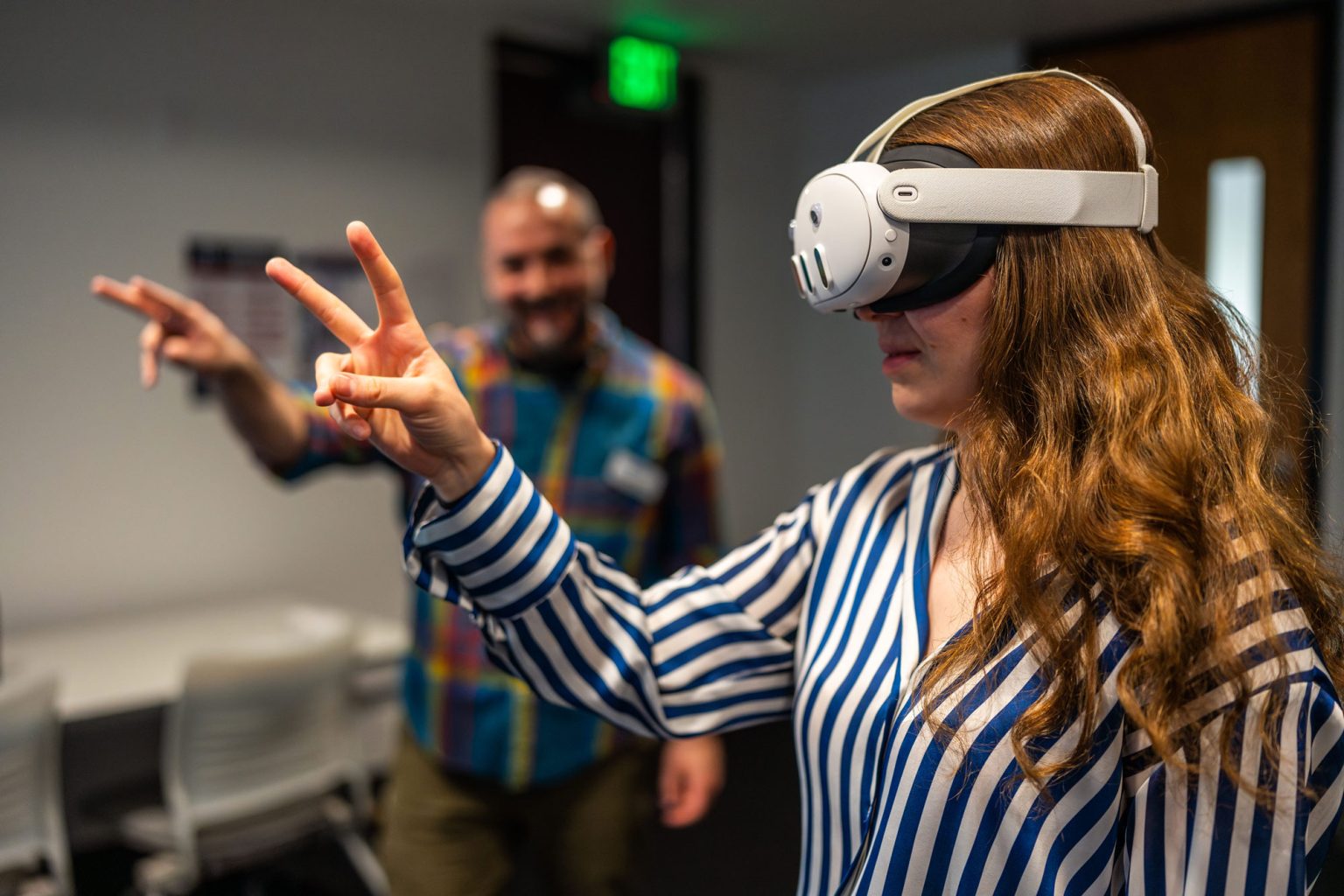Christina Sciabarra, a political science teacher at Bellevue College, has received a small grant to explore the impact of climate change on native flora using 360-degree video technology. This project is part of Bellevue College’s extended reality educational network initiative in the Pacific Northwest, funded by the National Science Foundation. Extended reality encompasses technologies that alter perception, from corrective lenses to virtual reality headsets, and has been used by scientists for various purposes such as surgical training and mental health treatment. Sciabarra aims to use extended reality to evoke empathy and activism around climate change.
Bellevue College received funding last year to develop its extended reality initiative, including providing faculty members with $1,000 microgrants for projects. Three of the ten awardees, including Sciabarra, are from Bellevue College, while the rest are from partner institutions. The college’s extended reality lab, established in 2017, has been a hub for exploring immersive technologies and creative educational applications. With support from experts like James Riggall, who introduced Sciabarra to 360-degree video technology, the college has been at the forefront of integrating extended reality into its curriculum.
Sciabarra’s project will involve shooting videos of plants at ground level to provide viewers with a “bug’s eye view” of their environment. She plans to incorporate audio clips explaining the impact of climate change on native flora to create a compelling narrative. In addition to filming in the Pacific Northwest, Sciabarra will travel to Peru to meet with Indigenous communities and document their perspectives on climate change. This interdisciplinary approach will allow her to gather diverse perspectives and create a more impactful educational experience for viewers.
The goal of Sciabarra’s project is to leverage immersive technology like 360-degree video to enhance education and raise awareness about climate change. She believes that immersive experiences can generate a deeper emotional connection with the subject matter, leading to greater empathy and engagement. By combining visuals, audio, and storytelling, Sciabarra hopes to create a multidimensional learning experience that challenges traditional teaching methods. The microgrant she received will cover miscellaneous expenses related to the project, which are expected to exceed $1,000.
Bellevue College’s extended reality initiative is focused on building a community of educators who share resources and collaborate on innovative projects. By providing microgrants to faculty members, the college encourages experimentation and creativity in the use of extended reality technologies for educational purposes. The extended reality lab at Bellevue College serves as a hub for exploring immersive technologies and developing new educational methods. With experts like James Riggall involved in the initiative, the college has been able to stay at the forefront of the field and create impactful learning experiences for students.
Sciabarra’s project is part of a larger effort to incorporate extended reality into education and drive awareness about important issues like climate change. By utilizing 360-degree video technology, she hopes to provide students with engaging and effective learning materials that go beyond traditional methods. Through her immersive experiences, Sciabarra aims to spark curiosity, empathy, and activism among viewers, encouraging them to take action to address climate change. This innovative approach to education showcases the potential of extended reality to transform teaching and learning in the modern age.


